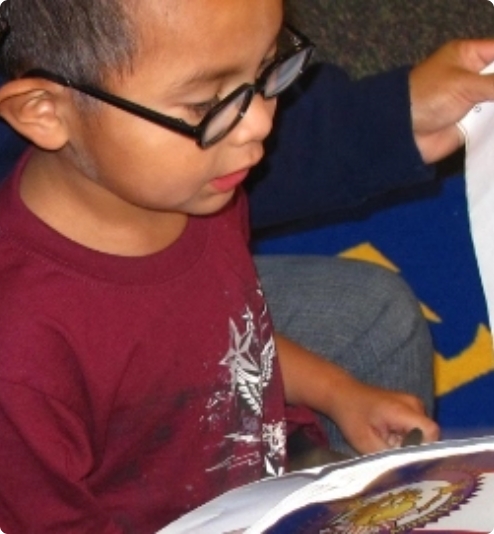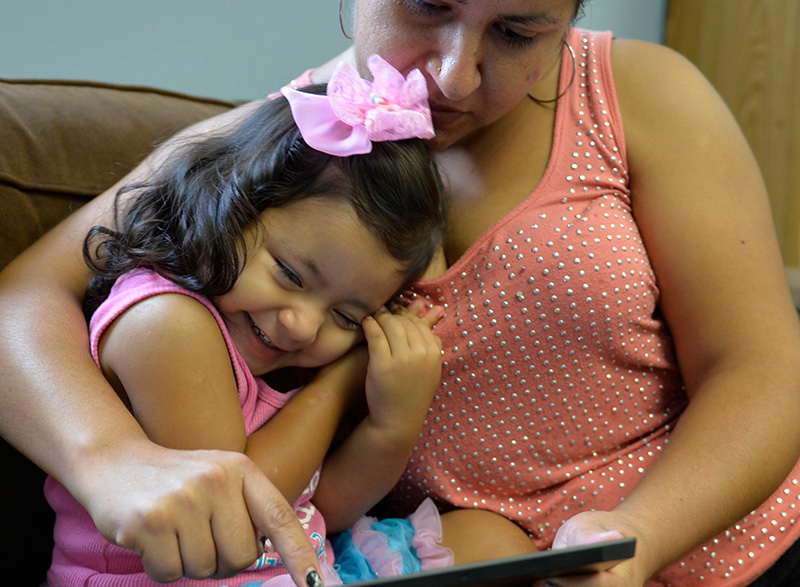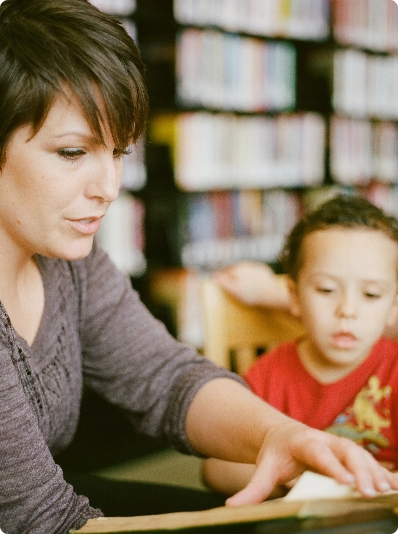Professional Learning
At NCFL, we make it easy to get the professional learning you need as a practitioner. We provide onsite training, facilitated online courses, and blended learning opportunities across the education spectrum to support family learning and literacy.
View Our Professional Learning Resources
Click on each button below to learn more.
- Family
- Early Childhood
Family Engagement
Strong program implementation requires specific and targeted professional learning. NCFL’s success in model program development since 1989 has long been grounded in the delivery of high-quality and evidence-based professional development that provides practitioners with not only the ‘why’ of family literacy and learning programming but the ‘how’ of program implementation. This ‘how’ includes the practical application of proven strategies delivered with intensity and duration—strategies that indeed work to eradicate poverty in families. The trainings that follow target elements of program implementation that can be used within, and often outside of, NCFL’s signature family literacy and family learning program models.

On-Site Training
Foundations of Family Learning Programs
The Foundations of Family Learning Programs training provides family literacy and family learning program practitioners with the frameworks needed to fully understand and implement NCFL’s signature family literacy and family learning place-based program models. Foundations is designed to provide a basic overview of the principles and practices of family literacy/family learning program implementation and the research that supports them.
Family Engagement in Home, School, and Community Settings (Parent Time and Parent and Child Together (PACT) Time
In Classroom Settings: Parent Time and PACT Time® are the heart of family literacy/family learning programs. In this training, participants incorporate parent topics into successful Parent Time sessions and implement the process of PACT Time in the classroom for families of preschool and elementary children. Find out how to use these two components to enhance the skills of families and improve literacy outcomes. Participants leave this session with an individualized plan for Parent Time and PACT Time.
In Home and Community Settings: One goal of Parent Time and PACT Time® is to move family engagement and interactive experiences beyond the classroom and into home and community settings. This training focuses on strategies to extend Parent Time and PACT Time in ways that are meaningful and sustainable for families. One strategy for doing that is family service learning, where parents and children move into leadership positions to solve problems and support community efforts. Participants leave this training with new ideas to help parents and children bridge the gap between school and home, and a framework for utilizing family services learning in programs.
Families Reading and Talking Together/Familias leyendo y hablando juntas (Train-the-Trainer Workshop)
Families Reading and Talking Together encourages learning and pre-literacy activities in the lives and homes of families of preschool children. This a train-the-trainer professional learning opportunity that provides workshops to give families ideas and strategies they can easily use with their children throughout the day. This resources and workshop materials are provided in both Spanish and English, and are designed to promote intergenerational learning in the homes of participating families, focusing on familiar everyday experiences.
Partnering with Families for Student Success
Create a partnership with families focused on student achievement! Through listening and learning alongside family members, teachers are becoming more critically aware of the changes in philosophy and the necessity to include parents in literacy conversations and dialogue. This professional learning opportunity, Partnering with Families for Student Success, presents family engagement research and practical ways that this research can be used to connect with families. Effective reading strategies that teachers can share with parents for use with their K-5 children will be presented and explored to increase student achievement in the elementary classroom.
Early Childhood Education
NCFL believes high-quality professional learning is an essential element for early childhood programs. Our professional learning opportunities support early childhood teachers who work with children ages birth to eight years. Because engaging parents is essential for young children’s oral language and reading development, we also include proven practices for working with parents to support children’s language and literacy skill development.
Our early language and literacy trainings are grounded in evidence-based practices as defined by the What Works Clearinghouse and the National Early Literacy Panel report

Bring NCFL’s Professional Development to Your School or Organization

All professional learning is provided by NCFL’s subject matter experts and certified trainers. Continuing Education Units (CEUs) are available for selected training.
NCFL also can provide presenters or facilitators for:
- Group Presentations
- Group Discussions
- Luncheons
- Conferences
- Planning Meetings
- Customized Training
- Technical Assistance
- Other Events
Explore More Family Education Resources
Whether you’re a parent, educator, or stakeholder, these resources can help strengthen family education in our communities.